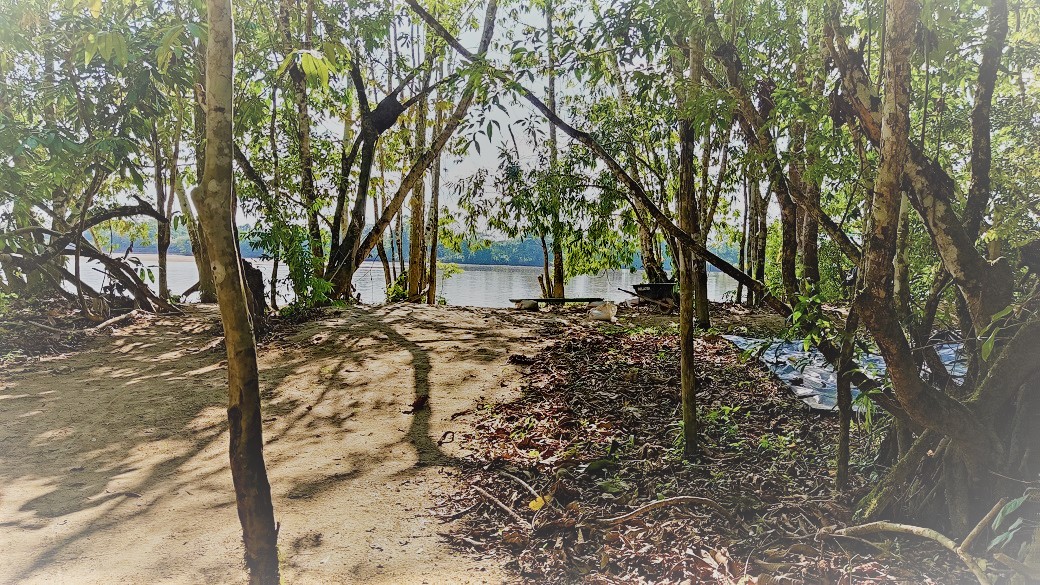GFC Submission to UNEP at final round of intergovernmental negotiations on NbS
Global Forest Coalition Submission
Final Round of Intergovernmental Consultations
on Nature-based Solutions (NbS)
Nairobi, 9-13 October 2023
The Global Forest Coalition (GFC), an NGO comprised of over 120 member organisations of Indigenous Peoples and local communities worldwide, thanks the United Nations Environment Program (UNEP) and co-chairs for the opportunity to contribute our views during the Final Round of Intergovernmental Consultations on nature-based solutions (NbS).
We are deeply concerned about the implementation of highly controversial NbS projects through carbon offset schemes and other greenwashing practices, posing a dangerous barrier to resolving the climate and biodiversity crises. NbS are increasingly being exposed as human rights and ecological catastrophes and harmful distractions from the real imperative, which is to cut carbon emissions, address climate change and halt biodiversity loss. Nevertheless, efforts and funding, particularly from the private sector, are being deployed primarily in the Global South to support projects seeking investment opportunities arising from the conservation, restoration and “sustainable” use of nature.
Market-based partnerships seeking the commodification, financialisation and privatisation of the functions of nature and the people who live in harmony with it must be eliminated, in line with target 18 of the Kunming-Montreal Global Biodiversity Framework (KMGBF). The outcomes of this consultation process must reflect that a vast majority of NbS projects are linked to greenwashing practices used by high-emissions industries in an increasingly failed attempt to mask their continued destruction of the planet.
Forests, ecosystems and biodiversity are not a commodity. It is problematic to make biodiversity conservation an investable asset. In that sense, we demand that substantive monitoring and critical considerations on the impacts of NbS are included in the outcomes of this consultation process to measure the socio-cultural, economic and environmental costs and risks of these schemes for women in all their diversity, Afro-descendant, local and Indigenous communities in the Global South. As we have reiterated in the previous consultations, research shows that these impacts tend to affect women more severely – one major reason for this is that land rights tend to shift from women to men when land becomes commercially attractive through, for instance, plantations and offset projects. We cannot reduce complex forest ecosystems into one convenient value: the amount of carbon in trees. It is fundamental to consider the traditional knowledge and contributions of Indigenous Peoples, women in all their diversity and local communities to protect ecosystems, forests and biodiversity.
GFC also opposes any support for new funding sources from the private sector, especially in the Global South, as well as the financialisation of nature through any project seeking investment opportunities arising from the conservation, restoration and sustainable use of nature. It is imperative to increase significantly financial resources to document the bad practices of NbS and assess the concerns raised by women’s and Indigenous peoples’ groups, civil society organisations and other rights holders on the instrumentalisation of NbS without free, prior and informed consent, grabbing Indigenous and community lands and undermining human rights in the name of ecosystem restoration. Additionally, perverse subsidies financed through public, private and multilateral funds – many of which fund monoculture plantations under the umbrella of nature-based solutions – must be eliminated. NbS must not promote or fund carbon markets and biodiversity offsets. Efforts must be focused on decarbonisation strategies, in line with Sustainable Development Goal (SDG) 13.
Promoting the implementation of NbS at a global, regional and local level without a multilaterally-agreed mandate, a mapping on the development and evolution of harmful and “positive” NbS practices, and a clear road map to move forward is deeply problematic. Standards, criteria and guidelines cannot be appropriately developed, denying the basic principles of mapping, assessment and characterisation of the diversity of practices, especially market-based.
GFC looks forward to continuing to support the UNEP in promoting a common agenda that advocates for rights-based environmental and gender justice while respecting the principles of multilateralism and plural approaches.
GFC regularly contributes to United Nations processes on issues like forests, biodiversity, climate change and gender in order to bring the priorities and perspectives of our member groups to international policy-making spaces.










